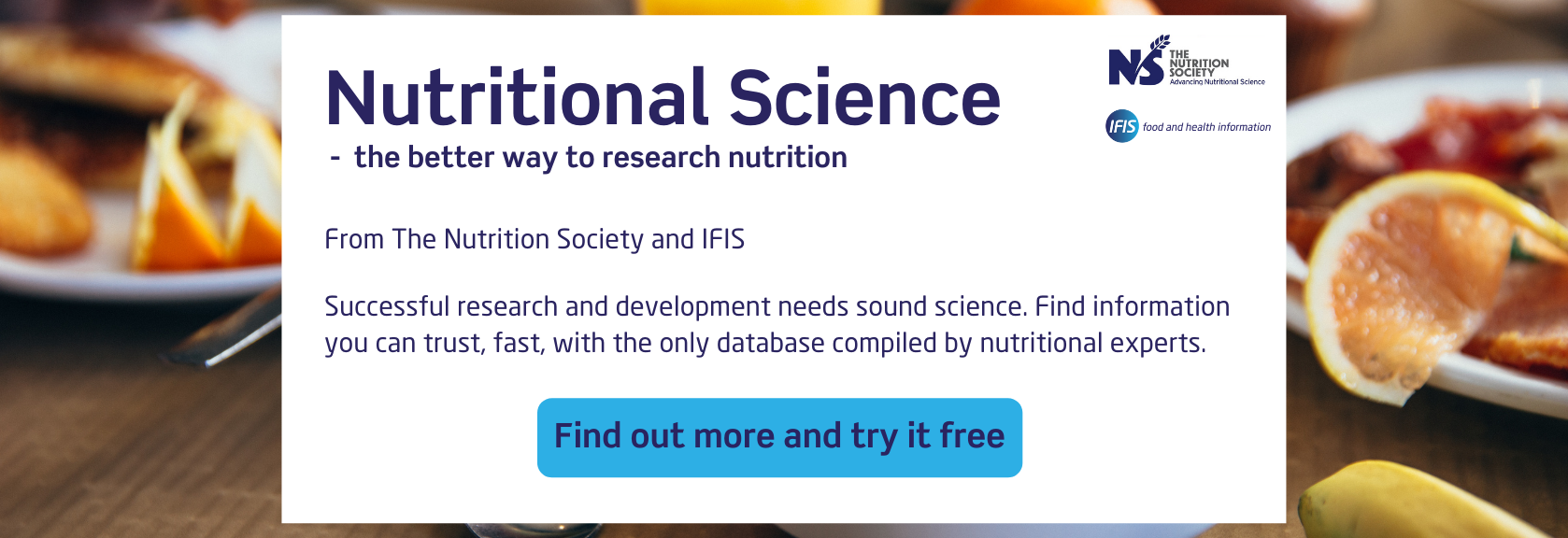1. Some search tools are designed for information discovery, such as subject databases like FSTA. Others for information access, such as Google Scholar. Use the best tool for the job, not the one closest to hand.
Information discovery and information access are different stages of the literature search process, and this is often overlooked.
-
Information discovery is the process of finding out about the existence of all the relevant research.
-
Information access is about getting the full-text of research. This is a later stage in the literature search process.
Some search tools are designed for information discovery (such as subject databases like FSTA and PubMed), some for information access (such as Google Scholar and ResearchGate).
It is a common mistake to use an information access tool for information discovery. However, this will make it more difficult to do a comprehensive literature search, which has a knock-on effect on the quality of your literature review.
Literature searching is a systematic process:
-
In the information discovery stage, you are looking for all the relevant research on the topic. Your search needs to be comprehensive. Subject-specific databases like FSTA are the most effective tool for this stage, as they are designed to make it as easy as possible to find all the relevant literature on a topic.
-
When you are confident you have found all the relevant information, you go through the process of screening your results to weed out duplicates and results which are obviously irrelevant or from poor sources.
-
At this point, after narrowing down your results, you need to find the full-text. And this is when you want to use a tool designed for information access. We recently published some advice on how to find the full-text of research articles.
2. Using a subject-specific database designed for your field will minimise the number of false hits in your search results
Subject-specific databases are usually built around a thesaurus of subject headings based in its discipline, which are used for indexing the database records. This makes it easy to retrieve targeted search results in that field, making them the most effective tools for conducting literature searches.
However, it’s important to remember that if the database you are using is focused on a different discipline than where your topic falls, you will still get false hits with a term. Food research is highly interdisciplinary, which can make information retrieval particularly challenging.
In a health-focused database, the search options and filters will have been developed for the human health field, which may not be helpful for searching food science topics unrelated to human health. So, for example, if your research is in nutrition, you may want to search a medical-focused database like PubMed, but don’t forget to search FSTA for food-focused records which may be excluded from a medical database.
What about multidisciplinary databases?
Because of their breadth of coverage, multidisciplinary databases don't have thesauri. This means that they are far more likely to return false hits, where the term you search is not used in the sense you need.
3. Academic search engines are easy to access but there are major downsides
Academic search engines like Google Scholar and Microsoft Academic (which will no longer be available after 31 December 2021 – more info) are the go-to search tool for many people - they’re easy to use, freely available, focused on scholarly information, and can be useful tools for accessing the full-text of articles and patents.
However, we don’t recommend using academic search engines for information discovery because they:
-
DO NOT exercise editorial standards, resulting in the inclusion of predatory journal articles. And, although specifically meant for scholarly information, irrelevant content can get through, like these lunch menus that were indexed in Google Scholar as though they are academic papers.

-
DO NOT allow precise control over searches, even with advanced search options.
-
DO NOT use indexing, which means you only find results written in the language in which you are searching.
-
DO cover all disciplines, so your searches are likely to bring back lots of false hits.
As such, academic search engines are an inefficient tool for information discovery. You could waste lots of time trawling through pages of records, with high-quality research mixed up with fake science and irrelevant content.
Academic search engines are better suited to information access. For example, after using a quality-checked database like FSTA to identify the relevant records for your research, you could use an academic search engine to help you find the full-text.
4. If you only use ScienceDirect, your literature search will be incomplete.
We talk to lots of people about their research behaviour, and we have been surprised (and concerned, to be truthful) to hear on multiple occasions that a researcher or student depends on ScienceDirect and nothing else.
This is not a criticism of ScienceDirect at all. In my experience, it is easy-to-use and works well for accessing information. The issue is that many people are unaware that ScienceDirect contains almost exclusively Elsevier content. Elsevier have a substantial, high-quality portfolio of journals in the fields relating to food science but, as a publisher-specific platform, ScienceDirect only contains approximately 20% of the published literature related to food.
To do a high-quality literature review, your literature searching needs to be comprehensive. So, if you are using ScienceDirect, you also need to make use of other databases, to make sure you don’t miss essential research published by other reliable sources.
5. Think about what types of content you need before you start
Different databases cover different types of information. Some may cover only journals; others may cover trade journals or patents or government information. So, before you start searching, it is worth taking the time to think about what types of information you need and where you are most likely to find it.
Why do we keep mentioning FSTA?
We’re experts in information discovery, specifically food information.
We were founded back in the 1960s in response to the large amount of food science research being published. We created the publication Food Science & Technology Abstracts to help researchers find relevant research.
Now online and known as FSTA, our remit has expanded over the years. While always food-focused, it is as interdisciplinary as the field of food research, covering everything from nutrition to animal sciences to economics to microbiology. Find out more.
Our mission is to fundamentally understand and serve the information needs of the food community. We work hard to ensure that FSTA is the most effective tool for food and nutrition research, and we have put this table together as an easy reference point to help researchers and students decide what is the best tool for their particular food information research needs:
Need a better way to find food information? That’s what we’re here for.
Visit the FSTA page for more information about this powerful research tool for the food community. And if you are ready to take the next step, request a demo or trial. We would love to show you what FSTA can do!







